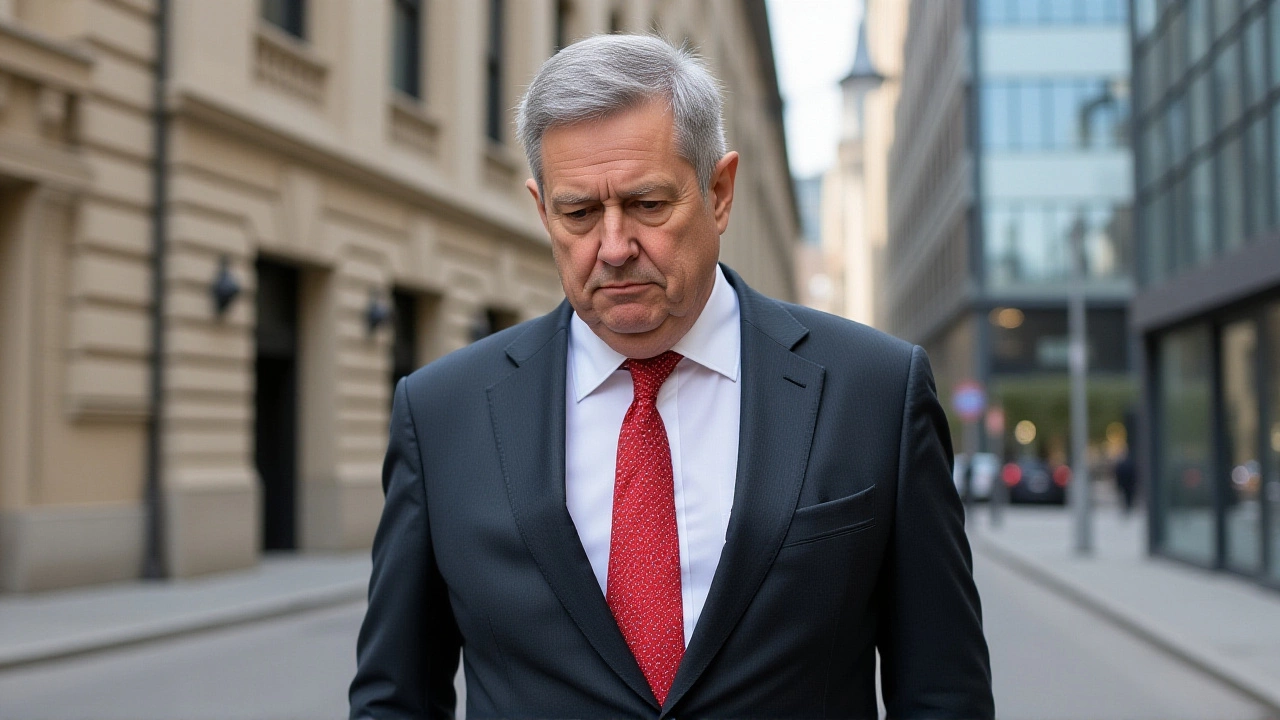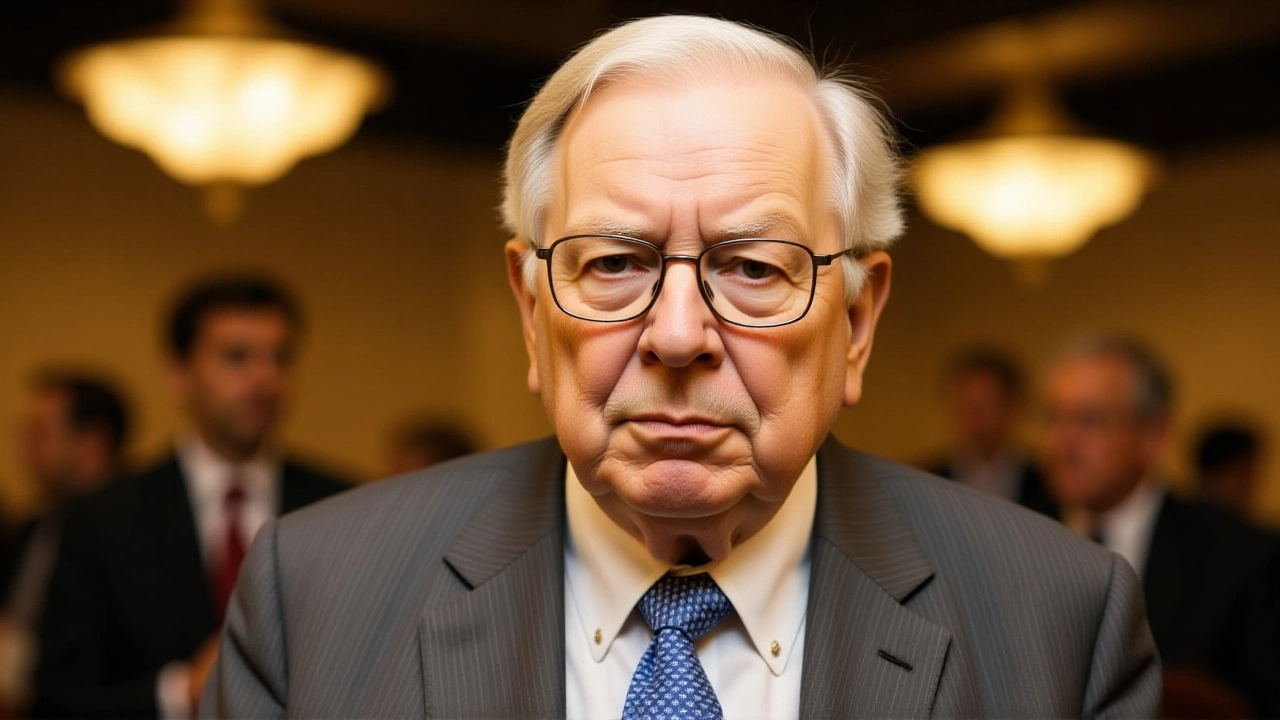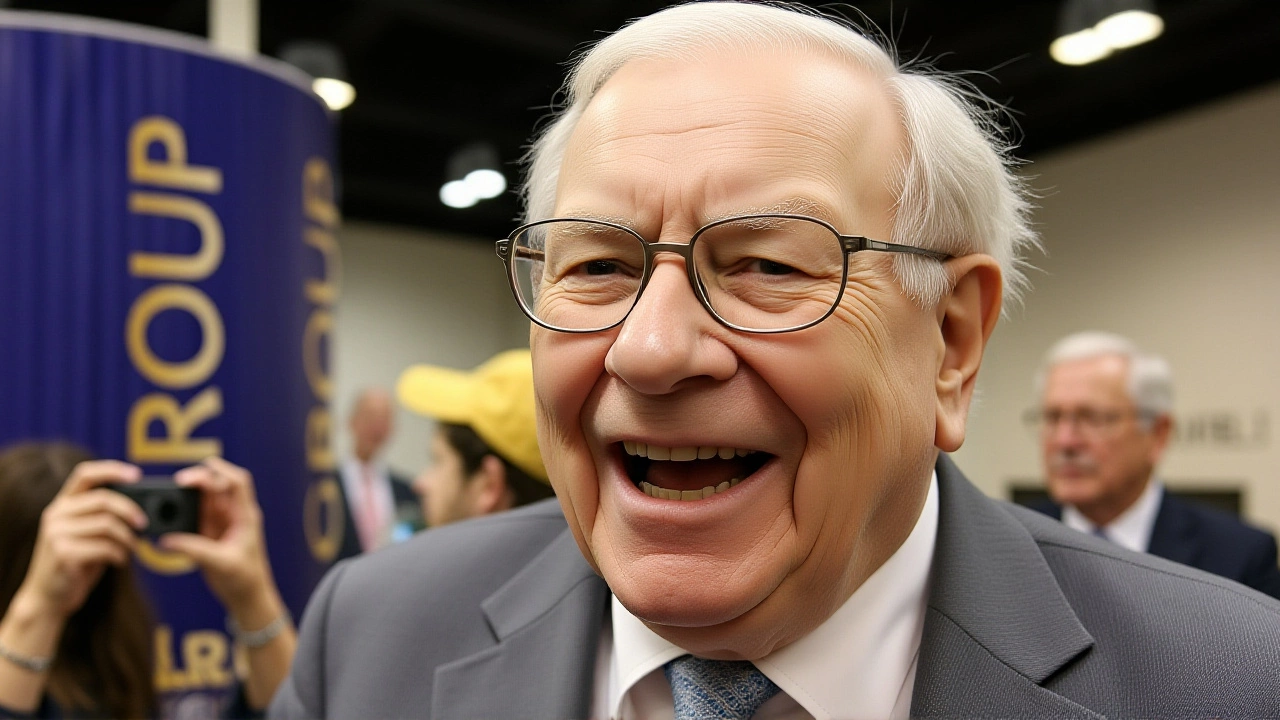When Warren Buffett sat down for his annual shareholder meeting in May, the room was quieter than usual. Not because of boredom — but because everyone knew this might be the last time they’d hear the Oracle of Omaha speak with the full authority of a man who’s spent six decades turning market panic into profit. By the end of 2025, he’ll step aside, handing the reins to Gregory Abel, but not before leaving behind a blueprint for surviving — and thriving — in turbulent times.
The Numbers Don’t Lie
Since 1985, Berkshire Hathaway has delivered an average annual return of 17.1%. That’s nearly double the S&P 500’s 10.5%. Think about that: $10,000 invested back then? It’s now worth $2.4 million. Meanwhile, the same amount in the broader market? Just $227,000. The difference isn’t luck. It’s discipline. As of June 30, 2025, Buffett’s portfolio stood at $257 billion, with four stocks — Apple Inc., American Express Company, Bank of America Corporation, and The Coca-Cola Company — making up 63% of its value. That’s concentration, yes. But it’s not reckless. These aren’t speculative bets. They’re businesses with moats: Apple’s ecosystem, American Express’s loyal cardholders, BofA’s vast branch network, and Coke’s global brand recognition. And they all pay dividends — except Berkshire itself. More on that later.What He Tells Novice Investors (And Why It Matters)
Here’s the twist: Buffett doesn’t expect you to pick stocks like he does. In fact, he thinks most people shouldn’t try. "Put 90% of your portfolio into buying the market," he told shareholders in a YouTube clip from October 2025. "By regularly investing in a broad index fund, the know-nothing investor can actually outperform most investment professionals." The other 10%? Short-term U.S. Treasury bills. A cash buffer. No fancy ETFs. No crypto. No meme stocks. Just the market, and safety. Business Insider summed it up in November 2025: "Invest in an S&P 500 index fund." That’s it. That’s the whole strategy. And it’s not because Buffett is being humble. It’s because he’s seen what happens when people chase returns. They buy high. They sell low. They panic when the market dips — exactly when he’s buying.The Long Game: How Berkshire Survived Its Own Rough Start
Buffett didn’t always win. In fact, Berkshire Hathaway underperformed the S&P 500 in six of its first 11 years. Some original investors sold. They walked away. They missed the ride. "Those who held on are rich," Buffett said in a Fortune interview. "I know of Berkshire stockholders — unheard-of by the public — who are billionaires entirely from holding their shares for decades." That’s the lesson buried under all the headlines. Success isn’t about timing the market. It’s about staying in it. Even when it hurts. Even when your neighbor sells their Tesla for a 50% profit and you’re still holding Coca-Cola. Even when your portfolio dips 20% in a year. Buffett’s own net worth — now over $100 billion — didn’t come from quick trades. It came from patience. From compounding. From ignoring noise.
Why Berkshire Never Pays Dividends
You might wonder: If Buffett’s so good at investing, why doesn’t he just give the money back to shareholders? Simple: He believes he can put it to better use. Berkshire Hathaway sits on a cash pile that’s ballooned during recent market volatility — $167 billion as of mid-2025, according to Stockcircle.com. Instead of paying dividends, Buffett waits. He waits for the next big mistake the market makes. The next company in distress. The next opportunity where fear creates value. When he finds it, he buys — often in billion-dollar chunks. That’s how he acquired BNSF Railway and Precision Castparts. That’s how he turned $5 billion into $20 billion in Apple stock. It’s not about greed. It’s about efficiency. Buffett argues that reinvesting earnings creates more long-term wealth than distributing cash — especially when the tax burden on dividends can eat into returns.Who’s Taking Over — And What It Means
On December 31, 2025, Gregory Abel becomes CEO. He’s 62. He’s been running Berkshire’s non-insurance businesses since 2018. He’s quiet. He’s meticulous. He doesn’t give TED Talks. He doesn’t appear on CNBC. He’s the opposite of Buffett in personality — but eerily similar in philosophy. Abel won’t change the strategy. He won’t start paying dividends. He won’t chase trendy tech stocks. He’ll keep the cash pile high. He’ll wait. He’ll buy when others are scared. Buffett will remain chairman — a title, not a role. He’ll attend meetings. He’ll offer advice. But the calls? They’re Abel’s now.
What This Means for You
You don’t need to be Warren Buffett to think like him. Start with the 90/10 rule. Buy an S&P 500 index fund. Set up automatic investments. Ignore the headlines. Let your money compound. If you’re bold? Put 5% into a company you truly understand — one with steady earnings, low debt, and a product people keep buying. Coca-Cola. American Express. Maybe even Kraft Heinz — Buffett’s top dividend stock as of April 2025. And if the market crashes? Don’t sell. Don’t check your balance every day. Remember: Buffett lost money in the early years too. But he didn’t quit. And neither should you.Frequently Asked Questions
Why does Warren Buffett recommend index funds for average investors?
Buffett believes most people lack the time, expertise, or emotional discipline to pick individual stocks. Index funds, like the S&P 500, offer instant diversification and historically deliver 10% annual returns. By automating investments and ignoring market noise, even "know-nothing" investors consistently beat professional fund managers over time.
What makes Berkshire Hathaway’s investment strategy different from hedge funds?
Unlike hedge funds that trade frequently and bet on short-term movements, Berkshire buys entire businesses — or large stakes — and holds them for decades. It avoids leverage, doesn’t chase trends, and waits for undervalued opportunities. Its cash reserves act as a buffer during downturns, letting it buy when others are forced to sell.
Why hasn’t Berkshire Hathaway ever paid a dividend?
Buffett believes the company can generate higher returns by reinvesting earnings into acquisitions and stock buybacks than shareholders could achieve on their own. Since 1965, Berkshire’s stock price has appreciated over 3.6 million percent — far exceeding what dividends alone could deliver, even with reinvestment.
How will Gregory Abel’s leadership differ from Buffett’s?
Abel won’t change the core strategy — he’s been implementing it for years. But he’s less media-savvy and won’t be the public face of Berkshire. He’s more operational, focusing on execution rather than storytelling. Investors should expect continuity: cash reserves, disciplined buying, and no dividends — just quieter, steadier leadership.
Is now a good time to invest like Buffett?
Yes — especially if you’re nervous. Buffett thrives in uncertainty. His top holdings are stable, dividend-paying giants with pricing power. If you’re unsure, start with an S&P 500 fund and add $50 a month. Over time, that habit beats timing the market. The best time to invest was 20 years ago. The second-best time is today.
What’s the biggest mistake average investors make when markets get volatile?
They panic and sell. Between 2000 and 2025, investors who bailed out during downturns lost an average of 30% more than those who held steady. Buffett’s advice isn’t just about picking stocks — it’s about controlling your emotions. The market isn’t your enemy. Your fear is.
